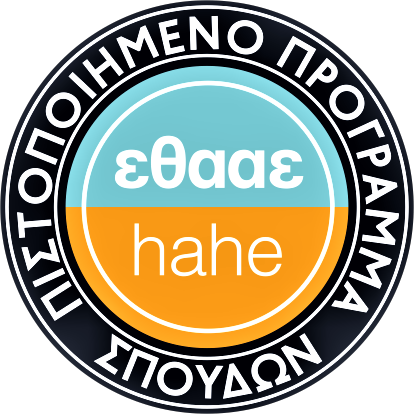3η Διάλεξη Σειράς Σεμιναρίων: Ψηφιακή Εργασία
Εδρα UNESCO για τις Ψηφιακές Μεθόδους στις Ανθρωπιστικές και Κοινωνικές Επιστήμες
UNESCO Chair on Digital Methods for the Humanities and Social Sciences
Σειρά Σεμιναρίων: Ψηφιακή Εργασία
Seminar Series: Digital Work
|
Χρόνος / Time |
Τετάρτη, 8 Μαρτίου 2023, 17:15-18:15 Wednesday, 8 March 2023, 5:15-6:15 p.m. |
|
Τόπος / Place |
Η ομιλία θα μεταδοθεί μέσω ZOOM από το σύνδεσμο: https://hu-berlin.zoom.us/j/61058440539?pwd=aThJSnd6YzlOelI4WXhpUXpqODV6QT09 |
|
Ομιλητής / Speaker |
Βάλια Κορδώνη / Valia Kordoni Humboldt-Universität zu Berlin |
|
Θέμα / Topic |
Responsible AI: a Game Changer for Technology Control |
Περίληψη / Abstract
Artificial Intelligence ("AI") refers to a growing world of sophisticated computer programs that "learn" from data in order to make decisions. Many of these AI systems are invisible to the public, yet the results of the decisions they make (or help humans make) have a huge impact on modern life, often creating new opportunities to improve the lives of people around the world, from business to healthcare to education. For many of us, AI primarily impacts the way we do things online: it controls whose updates we read on Facebook, which products we select on Amazon, and which movies we watch on Netflix. However, AI is increasingly being used to make decisions in more serious areas of life like hiring (e.g., deciding whose resume gets reviewed by a human and whose gets skipped), education (e.g., assigning grades based on past performance), and even law enforcement (e.g., helping a judge decide who gets bail).
Thus, very important questions about the best way to build fairness, interpretability, privacy, and security into AI systems have been being raised. There has been considerable work recently in the natural language community and elsewhere on Responsible AI. Much of this work focuses on fairness and biases. In this talk, we will highlight the fact that although there is quite a bit of research on bias and fairness, more work is needed to address the fact that AI in systems in use in everyday life may still be dangerous. This is the only way to really understand how AI works, so that we can gain the control of it.
Βάλια Κορδώνη / Valia Kordoni
Valia Kordoni is a Deputy Chair of Computational Linguistics at the Department of English at Humboldt University Berlin. She is an active researcher in Language Technology (LT), Data Science and Artificial Intelligence (AI).
Her research interests include multilingual Robust Natural Language Analytics, Computational Semantics, Discourse and Human Cognition Modeling, as well as Machine Learning for the automated acquisition of knowledge, especially concerning multiword units and figurative language and their impact in Natural Language Processing, spoken and written. She has been the president of the ACL (Association for Computational Linguistics) SIGLEX's (Special Interest Group on Lexicon) MWE (Multiword Expressions) Group. She was the Local Chair of ACL 2016 - The 54th Annual Meeting of the Association for Computational Linguistics. She has coordinated and contributed to many projects funded by the EU, the DFG (Germany), the BMBF (Germany), the DAAD (Germany), as well as the NSF (USA).



